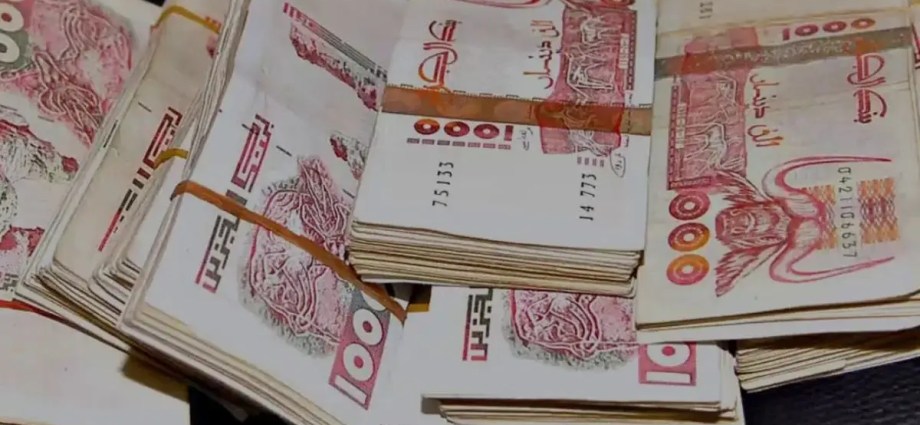Algeria Launches Major Anti-Money Laundering Crackdown Targeting Over 300,000 Entities
In a sweeping move to combat financial crime, Algeria has initiated a large-scale monitoring operation targeting businesses, associations, and foundations across the country. The effort forms a critical part of the nation’s enhanced anti-money laundering (AML) and counter-terrorism financing strategy, aligning with international standards and responding to heightened global scrutiny.
A Broad and Ambitious Oversight Campaign
The operation, led by the National Center of the Commercial Registry (CNRC), marks one of the most extensive regulatory actions in recent Algerian history. According to official reports, a staggering 173,976 commercial companies and 137,752 non-profit organizations—including associations and foundations—have been placed under review. The move underscores Algeria’s commitment to tightening financial oversight and reinforcing legal and institutional frameworks against illicit fund flows.
But what does this mean for the everyday business or non-profit operating in Algeria? For many, it signals a new era of transparency and accountability—one where financial practices will be scrutinized like never before.
Breaking Down the Numbers: Which Entities Are Under Review?
The scale of the operation is vast. Among the commercial entities inspected are:
- 91,776 limited liability companies (SARL)
- 2,901 joint-stock companies (SPA)
- 69,516 single-member limited liability companies (EURL)
- 750 public industrial and commercial enterprises (Epic)
- 544 groups and 1,648 civil societies, including 43 real estate civil societies (SCI)
On the non-profit side, the review encompasses 137,736 associations and 16 foundations, in addition to 15,125 wakfs (Islamic endowments). This dual focus on both commercial and charitable sectors highlights the government’s holistic approach to preventing financial abuse across all types of organizations.
International Pressure and the Drive for Compliance
This crackdown is no isolated incident. Algeria’s push for stricter financial controls comes in the wake of its placement on the Financial Action Task Force (FATF) grey list in October 2024. This listing indicates that the country has strategic deficiencies in its AML and counter-terrorism financing protocols but has committed to resolving them within an agreed timeframe.
As the CNRC report explicitly notes, the evaluation of legal entities is part of Algeria’s “international obligations, particularly those set out by the FATF.” The message is clear: Algeria is determined to shed its grey-list status and align its financial governance with global norms.
Risk-Based Approach: Prioritizing Vigilance
Not all entities are considered equal in the eyes of regulators. The risk assessment carried out by the CNRC classified organizations into two broad categories: those posing a medium risk and those with a low risk of being used for money laundering or terrorism financing.
Entities falling into the medium-risk bracket—including SARLs, SPAs, civil societies, foundations, and groups—are now subject to intensified scrutiny. The report emphasizes that these structures represent “priorities for vigilance due to their combination of medium risk and significant potential impact.”
For them, the CNRC recommends “enhanced due diligence and rigorous transactional monitoring.” Lower-risk entities may receive lighter oversight, unless specific red flags or unusual contexts emerge.
What’s Next for Algeria’s Financial Ecosystem?
The implications of this large-scale review are multifaceted. On one hand, it demonstrates Algeria’s serious intent to combat financial crime and protect its economy from abuse. On the other, it places a new compliance burden on hundreds of thousands of organizations—many of which may be unfamiliar with the intricacies of international AML standards.
For business owners and non-profit leaders, the message is unambiguous: transparency is no longer optional. Enhanced record-keeping, stricter internal controls, and cooperation with regulatory bodies will be essential moving forward.
Algeria’s journey toward full FATF compliance is still underway, but this operation marks a significant milestone. By casting a wide net and adopting a risk-based methodology, Algerian authorities are not just checking boxes—they are building a more resilient and trustworthy financial environment.
A Step Toward Global Integration
In the long run, these efforts may also help integrate Algeria more fully into the global economy. Stronger financial governance can boost investor confidence, facilitate international trade, and improve the country’s standing among foreign partners.
As one financial analyst familiar with the region noted, “Algeria is sending a strong signal that it is ready to play by international rules. This isn’t just about avoiding penalties—it’s about building a modern, compliant financial system that can support sustainable growth.”
Only time will tell how effectively these measures are implemented, but one thing is certain: the era of lax financial oversight in Algeria is coming to an end.


